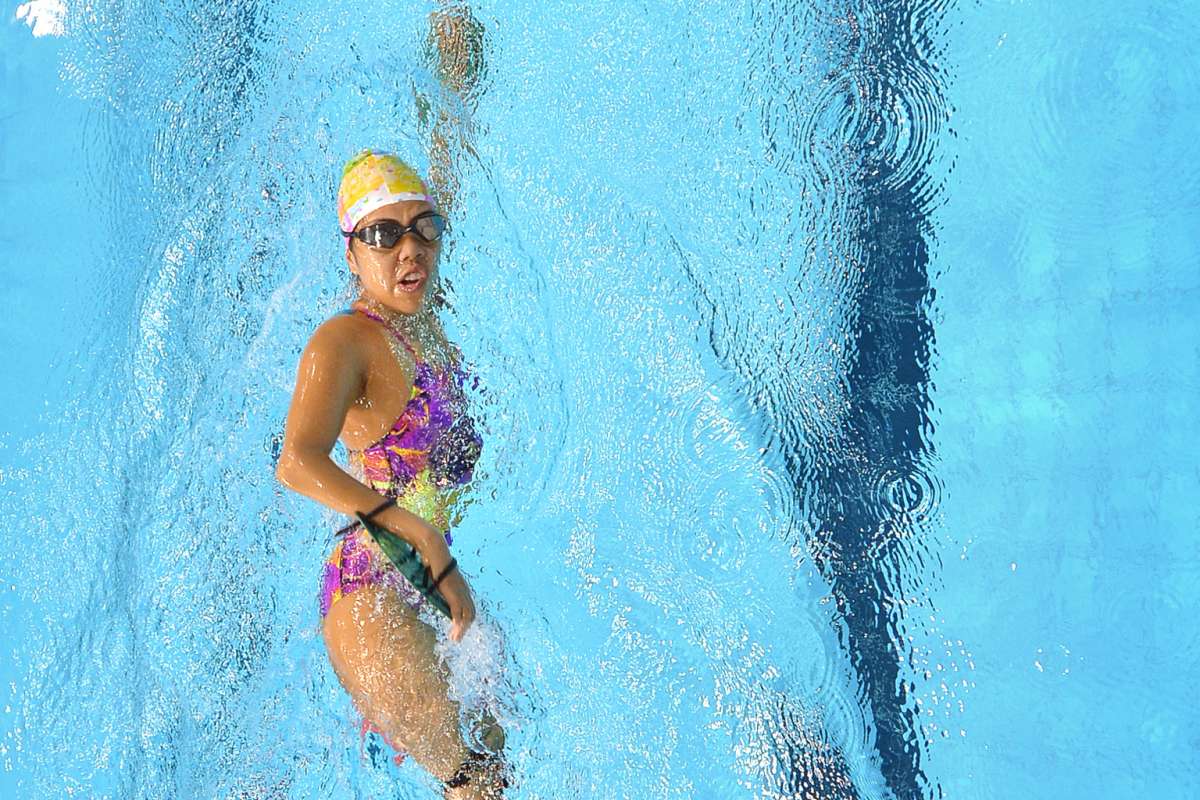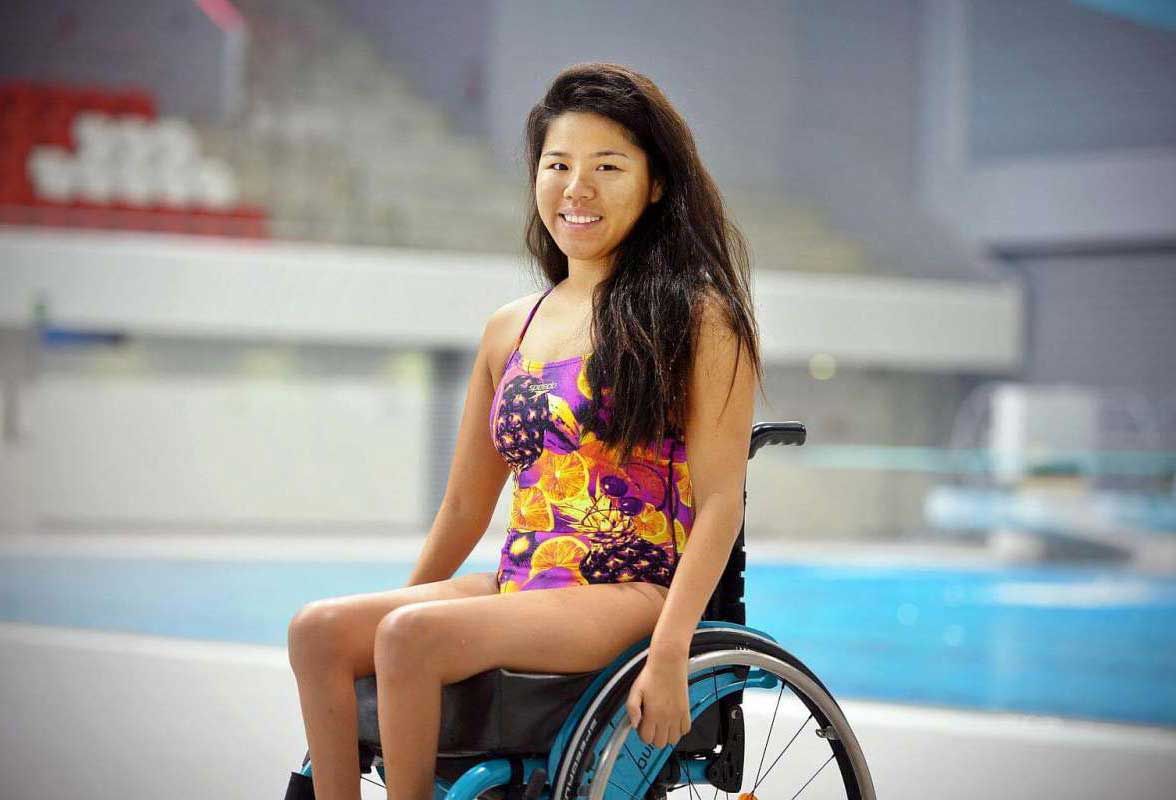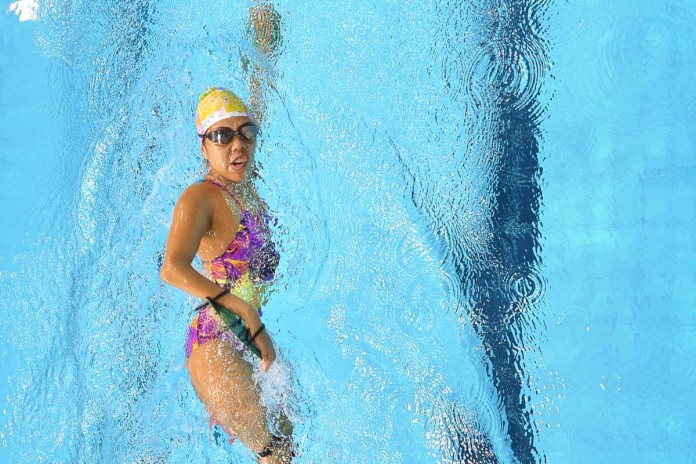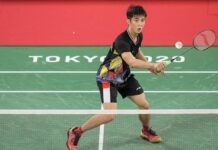The pool transformed Yip Pin Xiu in such a profound way that even after taking a year off, she found her focus again
Every time Yip Pin Xiu’s coach Mick Massey lowers her into the pool before a race, she knows she is swimming for something greater than herself.
Once upon a time, swimming changed her. Competing all over the globe transformed her into a poised and outgoing woman, a world away from the shy schoolgirl in leg braces who had staples thrown at her because she looked different.
But now Yip, who has muscular dystrophy, is changing her sport instead, shifting mindsets with her feats in the water.
“If I were doing it for myself, I wouldn’t have continued this long,” the 24-year-old told The Straits Times.

“But I want to show Singaporeans that as long as you set your mind on something, regardless of your circumstances, you can find opportunities along the way and you can reach your goal.
“I don’t think I’m extraordinary. I’m just like every normal Singaporean.”
Yet, normal Singaporeans do not break world records twice in three days, as Yip did in May at the International Paralympic Council Swimming European Open Championships.
Normal Singaporeans do not win a gold and a silver medal on their Paralympics debut, as she did in 2008.
By parting water faster than most, she set in motion ripples that still reverberate today.
In 2008, her performances in Beijing ignited a debate about cash prizes for para athletes, which led to the rewards being doubled eventually.
At last year’s ASEAN Para Games, she made Singaporeans rethink the idea of disadvantage when, thrown into a race with competitors more mobile than her, she decimated the world record while winning the race.
But what makes Yip, currently The Straits Times Athlete of the Year, shrug off her achievements with typical self-deprecation was the manner in which competitive swimming nearly slipped from her grasp – ironically, when she was on top of the world.
After the high of her Beijing triumphs, she took a year off racing to focus on school, to live a life she had given up, one where she had more time to spend with family and friends. She trained only four times a week, compared with the 12 she was clocking previously.
Her grades went up but so did her times. Personal bests were beyond reach. The early morning training sessions, routine for elite swimmers who train twice daily, became a slog she loathed.
“It was really hard to get back (into the pool) because after you experience not having to wake up at 5am, it’s difficult to want to put yourself back into the routine,” said Yip, who was previously coached by former Singapore swim star Ang Peng Siong.
“That’s why I feel like my struggles are very real, that any other Singaporean can face this. It’s not like a struggle that only a Paralympian or an Olympian can face.”
She wondered if swimming was worth the trouble. Four years ago, she could grip the backstroke start bar. Now, she has to be anchored by Massey. Her body, ravaged by her condition, would be sapped by training. Before, she would still have energy at night. Now, she just wants to sleep.
In the end, it was Yip’s competitive drive that saw her claw her way back into the game.
“I don’t like losing. Maybe you can call it a need for speed. It can be about the stupidest things, like wanting to be the first to press the lift button. I just have a competitive streak in me, and as long as I set my mind on something, I want it,” she said.
“I know that I cannot snooze, go back to bed and say I don’t want to do this, because training is part of the journey and with every single session I know it brings me nearer to my goal.”
She made her comeback late in 2010, resuming training at least 12 times a week. She qualified for the London Paralympics after only a year of training, but, agonisingly, finished fourth in both her events.
Which is why this year’s Games in Rio de Janeiro, which come after a full four years of preparation, mean more to Yip, especially since she is unsure whether she will attempt to qualify for the next edition in Tokyo.
Medals are definitely on her agenda but she wants more. “From a kid who didn’t know much about para sports, to eventually becoming a Paralympian… I want to tell people that if you want it bad enough you can get there somehow,” said Yip.
“I just hope that my actions are able to (inspire) other Singaporeans.”
Few would dispute that they already have.
SWIMMING
Facts on the sport
Swimming, one of eight sports competed at the inaugural Paralympics at Rome 1960, is also the sport which gave Singapore its first Paralympic gold, when Yip Pin Xiu won the the 50m backstroke S3 at Beijing 2008. She also won a silver (50m freestyle S3).
For the Rio Games, there are 152 medal events with 620 participating athletes.
Classification
Physical (1-10), visual (11-13) and intellectual (14) – the lower the number, the more severe the impairment.
Team Singapore at Rio Games
Yip Pin Xiu (50m, 100m backstroke S2)
Theresa Goh (50m, 100m, 200m freestyle S5, 100m breaststroke SB4).

This article was first published on Sep 06, 2016.
Get a copy of The Straits Times or go to straitstimes.com for more stories.







